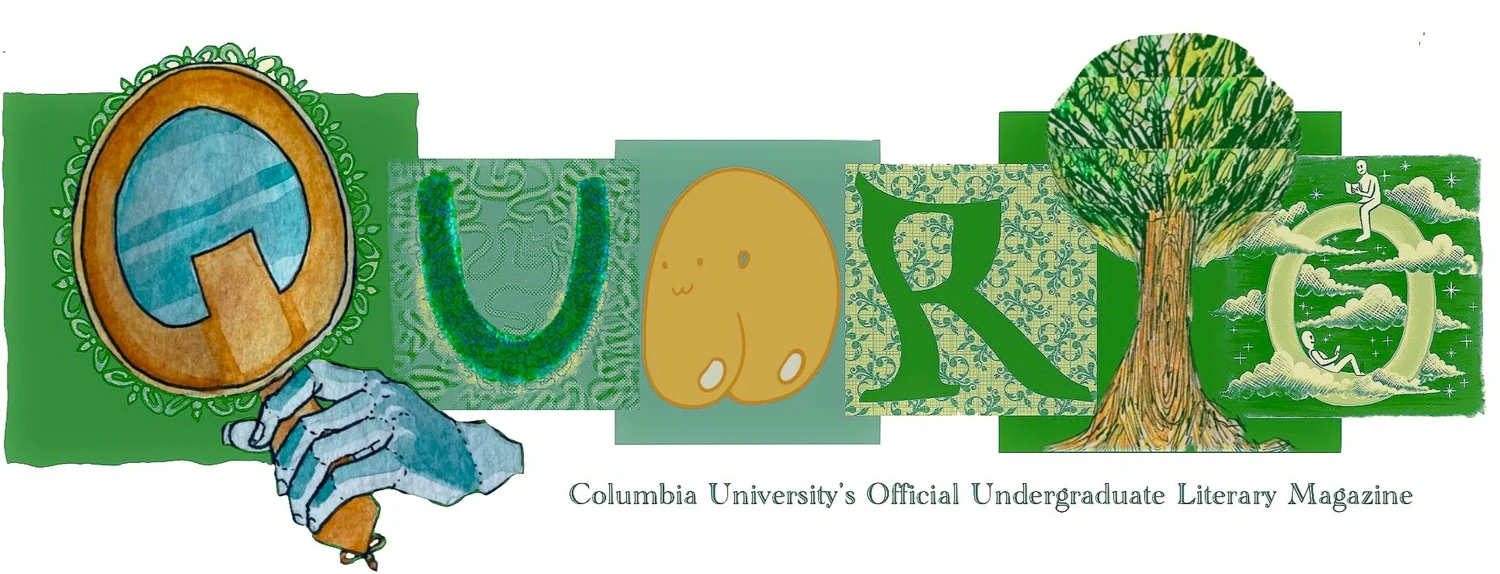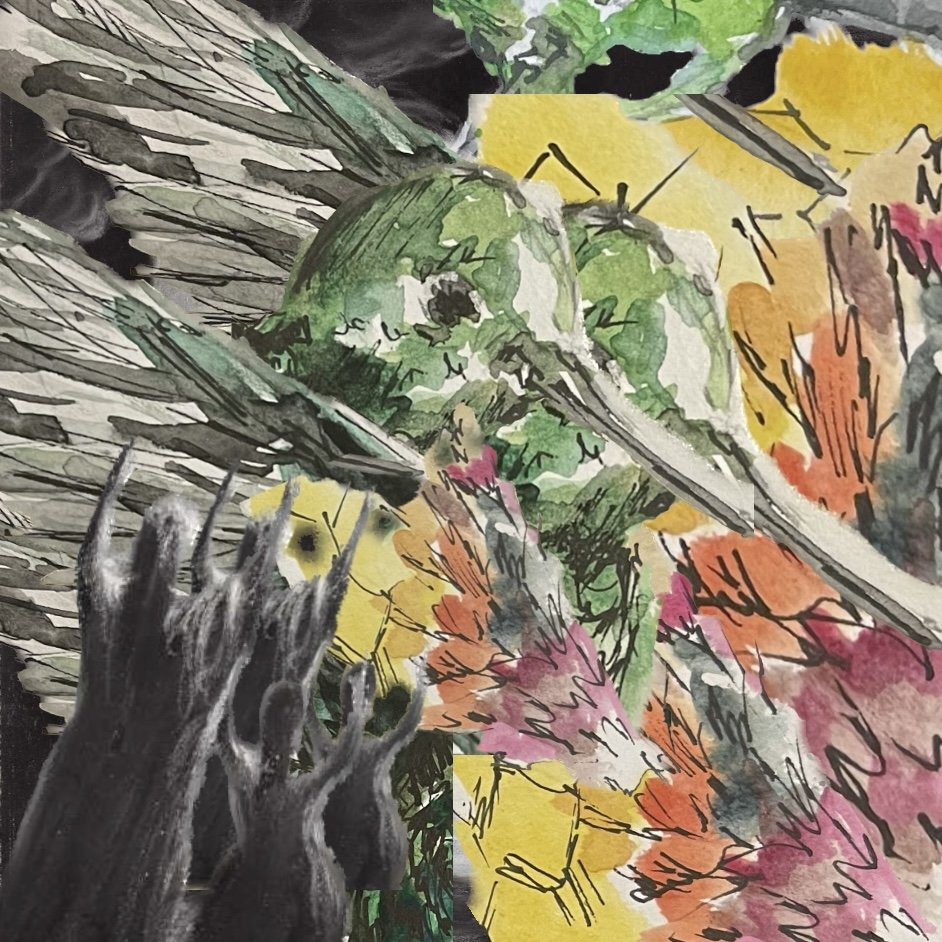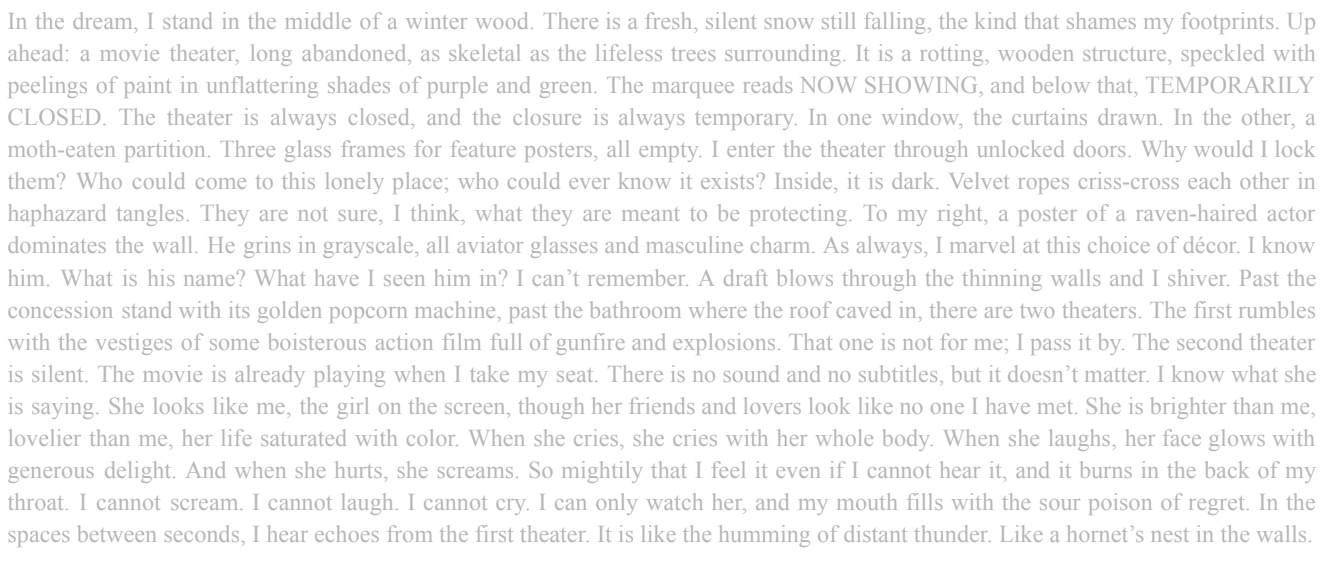Content warning: mentions of death and blood
Based on the murder of 12-year-old Prince Edward V of England and his brother, 9-year-old Prince Richard, Duke of York in the Tower of London
Dearest Mother,
I have become fossilized in a summer of stone,
a summer of waiting,
a summer of depravity
O Mother,
how I cradle his face in my hands,
for isn’t his smooth cheek that of a babe’s?
London planes beckon me with their spindly fingers
their leaves murmur, asking to brush against Richard’s golden locks
this scraping on glass, this mockery,
sends currents down my back, icy and unforgiving
a touch so unlike your own
O Mother,
show me your face once more
so that I may memorize the exact blue
that your pupil drowns in,
the blue that I am unable to carry on
My mouth is now acquainted with the tips of my thumbs
they point upwards toward a god
I release myself to him; I confess, I confess
and I dare not ask if he listens
do you listen?
O Mother,
where are you?
two months and seventeen days,
I was not yet able
to feel the gold dig into my skull
to feel the slight space between your hand and my back
before stepping into greatness
I remember our last day of true sunlight here:
in the garden,
the breeze knit itself between our fingers,
carried our light laughter,
a breeze whose absence is now noticed
the sun warmed patches of our skin,
stilled us
made us forget the cold dark damp
that awaited us
O Mother,
I promise Richard this:
whatever that may happen,
my body is his shield
whatever dagger that dare spill our blood
will spill mine first
We wait for the airy brush of black fabric
when at last, our fate is revealed
and the blackbird sings
Murder me, uncle, Lord Protector
place bones breaths boys in boxes, Lord Protector
splatter red for gain of purple, Lord Protector
tear nightgown tear innocence tear us away from a mother, Lord Protector
place us in a white dollhouse, Lord Protector
smear shit on my cheeks my chin, Lord Protector
make me do a dance make me a fool, Lord Protector
rip rave roar rage. race me, race me, Lord Protector
erase our names our bodies come August, Lord Protector
I will always be your predecessor, Lord Protector, King
E.





















